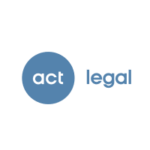-
What is the environmental framework and the key pieces of environmental legislation in your jurisdiction?
-
Who are the primary environmental regulatory authorities in your jurisdiction? To what extent do they enforce environmental requirements?
-
What is the framework for the environmental permitting regime in your jurisdiction?
-
Can environmental permits be transferred between entities in your jurisdiction? If so, what is the process for transferring?
-
What rights of appeal are there against regulators with regards to decisions to grant environmental permits?
-
Are environmental impact assessments (EIAs) for certain projects required in your jurisdiction? If so, what are the main elements of EIAs (including any considerations in relation to biodiversity or GHG emissions) and to what extent can EIAs be challenged?
-
What is the framework for determining and allocating liability for contamination of soil and groundwater in your jurisdiction, and what are the applicable regulatory regimes?
-
Under what circumstances is there a positive obligation to investigate land for potential soil and groundwater contamination? Is there a positive obligation to provide any investigative reports to regulatory authorities?
-
If land is found to be contaminated, or pollutants are discovered to be migrating to neighbouring land, is there a duty to report this contamination to relevant authorities?
-
Does the owner of land that is affected by historical contamination have a private right of action against a previous owner of the land when that previous owner caused the contamination?
-
What are the key laws and controls governing the regulatory regime for waste in your jurisdiction?
-
Do producers of waste retain any liabilities in respect of the waste after having transferred it to another person for treatment or disposal off-site (e.g. if the other person goes bankrupt or does not properly handle or dispose of the waste)?
-
To what extent do producers of certain products (e.g. packaging/electronic devices) have obligations regarding the take-back of waste?
-
What are the duties of owners/occupiers of premises in relation to asbestos, or other deleterious materials, found on their land and in their buildings?
-
To what extent are product regulations (e.g. REACH, CLP, TSCA and equivalent regimes) applicable in your jurisdiction? Provide a short, high-level summary of the relevant provisions.
-
What provisions are there concerning energy efficiency (e.g. energy efficiency auditing requirements) in your jurisdiction?
-
What are the key policies, principles, targets, and laws relating to the reduction of greenhouse gas emissions (e.g. emissions trading schemes) and the increase of the use of renewable energy (such as wind power) in your jurisdiction?
-
Does your jurisdiction have an overarching “net zero” or low-carbon target and, if so, what legal measures have been implemented in order to achieve this target.
-
Are companies under any obligations in your jurisdiction to have in place and/or publish a climate transition plan? If so, what are the requirements for such plans?
-
To what extent does your jurisdiction regulate the ability for products or companies to be referred to as “green”, “sustainable” or similar terms? Who are the regulators in relation to greenwashing allegations?
-
Are there any specific arrangements in relation to anti-trust matters and climate change issues?
-
Have there been any notable court judgments in relation to climate change litigation over the past three years?
-
In light of the commitments of your jurisdiction that have been made (whether at international treaty meetings or more generally), do you expect there to be substantial legislative change or reform in the relation to climate change in the near future?
-
To what extent can the following persons be held liable for breaches of environmental law and/or pollution caused by a company: (a) the company itself; (b) the shareholders of the company; (c) the directors of the company; (d) a parent company; (e) entities (e.g. banks) that have lent money to the company; and (f) any other entities?
-
To what extent can: (a) a buyer assume any pre-acquisition environmental liabilities in an asset sale/share sale; and (b) a seller retain any environmental liabilities after an asset sale/share sale in your jurisdiction?
-
What duties to disclose environmental information does a seller have in a transaction? Is environmental due diligence commonplace in your jurisdiction?
-
What environmental risks can be covered by insurance in your jurisdiction, and what types of environmental insurance policy are commonly available? Is environmental insurance regularly obtained in practice?
-
To what extent are there public registers of environmental information kept by public authorities in your jurisdiction? If so, what is the process by which parties can access this information?
-
To what extent is there a requirement on public bodies in your jurisdiction to disclose environmental information to parties that request it?
-
Are entities in your jurisdictions subject to mandatory greenhouse gas public reporting requirements?
-
Have there been any significant updates in environmental law in your jurisdiction in the past three years? Are there any material proposals for significant updates or reforms in the near future?
Germany: Environment
This country-specific Q&A provides an overview of Environment laws and regulations applicable in Germany.
















